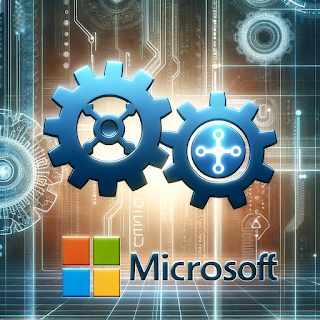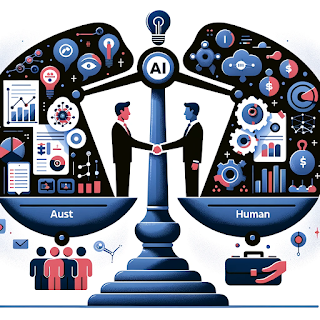Microsoft and OpenAI: Navigating the AI Partnership Maze – What's Next?
In the rapidly evolving landscape of artificial intelligence, the partnership between Microsoft and OpenAI stands out as a beacon of strategic collaboration and independent innovation. Recently, they announced the extension of their partnership through a multiyear, multibillion-dollar investment. This move underscores a shared ambition to democratize AI technology and extend its benefits globally. Satya Nadella, Microsoft's CEO, emphasizes this collaboration as a gateway for developers and organizations to access top-tier AI infrastructure and tools through Azure. For example, OpenAI's GPT-3 language model has been used to create chatbots, language translation tools, and even creative writing prompts. These applications highlight the practical implications of AI advancements and how they are transforming different industries.
OpenAI's role as a capped-profit company governed by a non-profit enables it to raise capital without compromising its core beliefs. This unique structure is pivotal in ensuring that the fruits of AI advancements are shared broadly and responsibly. However, it is also important to acknowledge the potential drawbacks of AI technology, such as job displacement and privacy concerns. The partnership with Microsoft, especially Azure's role as the exclusive cloud provider, has been crucial in achieving OpenAI's goals. Together, they have built multiple supercomputing systems vital for training OpenAI's groundbreaking models.
On the other hand, Google, a key competitor in the AI space, is not standing still. The tech giant has been weaving AI into Google Workspace, enhancing tools like Gmail, Meet, and Docs with AI-powered features. Thomas Kurian, CEO of GoogleCloud, points to this integration as a significant shift in the industry, likening it to the impact of previous technological revolutions. Google's approach focuses on complementing human creativity with AI, adhering to principles that keep the user in control. This method underscores Google's commitment to a more measured and user-centric AI development strategy.
Meanwhile, Microsoft has been aggressive in its AI integration, especially with the introduction of Copilot in its Office suite. This AI-powered engine is designed to revolutionize how users interact with applications like Word, Excel, and Outlook, enhancing productivity and creativity. The new Business Chat feature, akin to ChatGPT, further embeds AI into everyday work processes, demonstrating Microsoft's commitment to leading the AI revolution.
The partnership between Microsoft and OpenAI and Google's strategic AI advancements paints a picture of a dynamic AI ecosystem. While Microsoft and OpenAI jointly push the boundaries of AI technology, their individual objectives reflect a nuanced dance of collaboration and independent pursuit. Microsoft's focus on integrating AI into its products targets a diverse user base, including enterprises and governments. At the same time, OpenAI's dedication to safe and powerful AI research continues unabated, supported by Microsoft's robust Azure infrastructure.
It seems like there are some potential concerns surrounding the partnership between OpenAI and Microsoft. One question is whether their differences could eventually affect the partnership. Additionally, there is uncertainty about whether OpenAI will be able to open up a wide market with Microsoft competitors. With the upcoming launch of GPT Marketplace, there is also speculation about whether OpenAI will need to balance its revenue goals with Microsoft's monetization of AI. All of these questions point to a moment of uncertainty in the industry that bears watching. Can the partnership be eventually affected by their differences? Will OpenAI be able to open a wide market with Microsoft competitors? With the upcoming launch of GPT Marketplace, will OpenAI walk a thin line eventually with Microsoft revenue goals monetizing AI? These are open questions that can follow this particular moment in the industry.
In conclusion, the recently extended partnership between Microsoft and OpenAI is a significant milestone in the development of AI. This partnership highlights a collaborative yet independent approach to AI development, which sets the stage for a future where AI is both advanced and responsibly integrated into our daily lives. As these tech giants navigate the complex world of AI, their strategies and innovations will undoubtedly shape the technological landscape for years to come, including the permanence of their own partnership. It is interesting to speculate whether OpenAI will become a Trojan horse and surpass Microsoft in the future.




Comments
Post a Comment